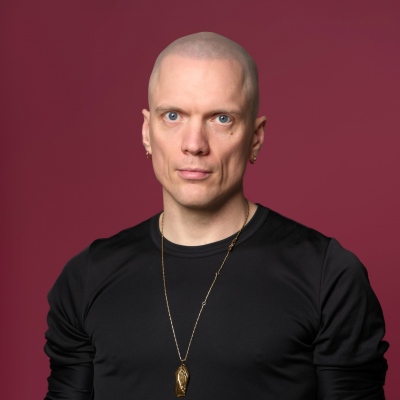Laure M. Hiendl
-
Laure M. Hiendl (*1986) is a contemporary music composer based in Berlin who delves into the structural and medial dynamics of circulation-forward capitalism—digitality, acceleration, and demediatization—and their aesthetic impacts on contemporary art music in the post-postmodern era. His works often explore sampling, particularly of scores, to craft new intertextual constellations from the vast digital archives. The concept of the "animated still life" (Lauren Berlant) is central to his aesthetic, reflecting the immediacy and frenetic stasis of the current media landscape.
Hiendl's compositions have been showcased at numerous festivals, including MaerzMusik, ECLAT, Ultraschall, Donaueschinger Musiktage, Warsaw Autumn and Sonic Matter Zurich. His collaborative practice involves exchanges with artists across generations and disciplines, such as singer Elaine Mitchener and choreographer July Weber. His music has been performed by many notable ensembles like JACK Quartet, International Contemporary Ensemble, Ensemble Mosaik, Ensemble Garage, NeoQuartet, Yarn/Wire, Ekmeles, Ensemble NAMES and Ensemble KNM Berlin, with whom he has a long-standing collaboration. Hiendl's accolades include the Rome Prize from the German Academy Villa Massimo, the Composition Prize of the City of Stuttgart, and multiple commissions from the Ernst von Siemens Music Foundation.
In 2022, Hiendl co-founded the Music Installations Nuremberg festival with Bastian Zimmermann, transforming music into performative spatial art, supported by the German Federal Cultural Foundation. Hiendl studied under Beat Furrer and Roger Reynolds, earning his doctorate from Columbia University with George E. Lewis on "Queer Composition." He completed his habilitation at the Mozarteum University Salzburg on "Composition and Digitality," where he now serves as Associate Professor and Head of the Department of Composition and Music Theory.
